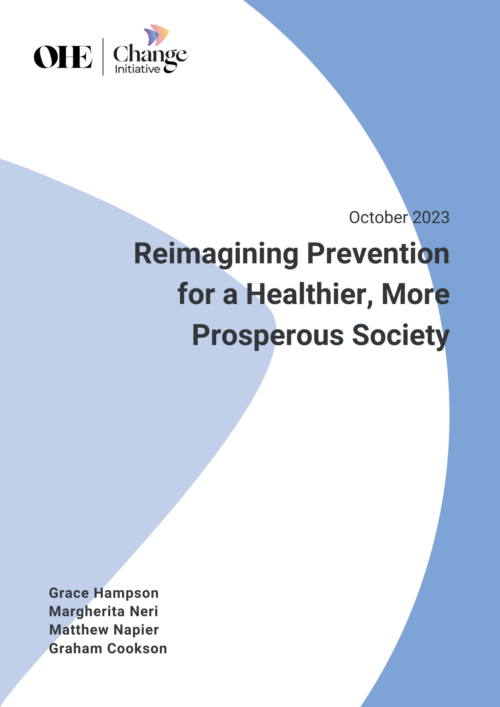The Prevention Agenda: Reimagining Health Systems
Challenges of economic growth, labour force, productivity, fiscal austerity, inequality and climate change are all affected by ill-health. Yet, prevention of ill health is widely considered to be the responsibility of health care systems.
Our focus on this area is to generate cross-governmental and societal support for the agenda by demonstrating the scale of the financial, health and environmental benefits of a shift to a full and effective prevention agenda and where/to whom these would accrue.
Through the Change Initiative, our projects will explore how critical challenges faced by governments worldwide could be tackled by a full and effective prevention agenda that is co-owned and delivered through cross-government and societal partnership, by detailing the financial, health and environmental benefits that could arise from such an agenda.
In this stream topics to explore include:
- Generating evidence to quantify the benefits of a full prevention agenda at the government and societal levels, including the scale of the potential savings
- Generating evidence to quantify the benefits of individual or smaller groups of prevention activities, including the scale of the potential savings over different time horizons (short, medium, long) and identification of ‘low hanging fruit’
- Identifying opportunities for excellence by studying and learning from international best practice
- Investigating political, economic and cultural barriers to progress towards a more effective prevention agenda and generating solutions
- Exploring the feasibility of different and innovative potential funding mechanisms for prevention (e.g. via social impact bonds, alternative contracting approaches and more) to establish optimal approaches to the financing of prevention
- Designing international principles of best practice for the structure and delivery of prevention activities
Reimagining Prevention for a Healthier, More Prosperous Society
